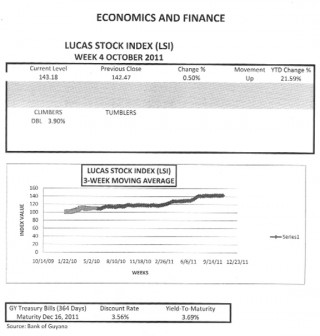Unique
The United Nations (UN) will launch the International Year of Cooperatives (IYC) on October 31, 2011 and there is no publicly available evidence that Guyana is ready to join that effort with its own initiative. Many causes are given recognition by the UN annually but with a significant portion of the global economy currently in crisis, none would be more important than the upcoming year in which the cooperative movement is to be celebrated. The cooperative is a unique form of private investment. To be considered a cooperative, an entity must satisfy several principles but three of them are essential to the classification. One, the users must be the owners. Two, the users must be in control and three, the users must be the primary beneficiaries of the investment. The manner in which cooperatives are managed differs from other forms of business organizations. While sound business techniques must be used to gain the best benefits for members, decisions of cooperatives are based on the democratic principle of one person, one vote as against weighted share ownership that favours the largest investors.
Create Stability

Speaking in July this year about cooperatives, the Secretary-General of the UN noted that, with their focus on people and values, cooperatives have been able to prevent many families and communities from descending into poverty. He noted also that cooperatives have the potential to promote gender equality and open opportunities for including youths in the national development process. Equally important was the capacity of cooperatives to create stability in the markets in which they operate, making it possible for many to survive economic crises. The resilience of cooperatives in times of adversity is not surprising since they are often born out of economic crises as a recent study by the International Labour Organization (ILO) reveals.
Forgotten
Despite its usefulness, the cooperative sector appears to be the forgotten segment of the Guyana economy and the country does not seem prepared or motivated at this point in time to join the global effort at celebrating this type of business organization and the good for which it stands. The global effort in 2012 of celebrating cooperatives seeks to promote the growth and formation of cooperatives. By the time the celebration is over, more people, whether in Guyana or elsewhere, should be aware of the role and contribution that this form of business enterprise could make to the social and economic development of a country. An enthusiastic observation of the IYC thus affords the government of Guyana an opportunity to strengthen and position cooperatives to play a greater role in national development. The most vivid demonstration would be the extent to which the administration enacts or improves policies, laws and regulations conducive to the formation, growth and stability of cooperatives, or allocates resources to strengthen institutional support for the sector.
Ample Notice
Despite being given ample notice, Guyana is not ready with a programme that demonstrates acceptance of the virtues of cooperatives and advances its use in national development. This suggests apathy or complete disinterest in using cooperatives as a strategic or valuable component of the national development strategy. Nowhere is the indifference more evident than in the deplorable conditions under which many of its agents work and in the inadequate capacity of its main institutions, namely the National Cooperative Union and the Cooperatives Department of the Ministry of Labour, Human Services and Social Security. By any measure, budget, staff or work environment, both of these bodies are in dire straits.
Ideally Suited
The national union system is expected to keep the movement alive by promoting cooperatives, providing training and helping to settle disputes where necessary. This body is ideally suited to playing a central role in the implementation of a national programme for celebrating the IYC. As currently configured, the national union system involves the use of regional bodies to facilitate direct interaction with cooperatives that fall within the respective regions. This interactive system is virtually dormant and individual cooperatives operate without adequate administrative support. The funding for the national union system is expected to come primarily from member organizations, but many cooperatives are inactive while others do not generate enough money to meet their financial obligations.
Struggling
Why cooperatives find themselves as struggling businesses is a matter for further inquiry. However, it appears as if the current administration has taken a supercilious position with respect to the survival of the national union system.
In contrast to sectors and industries that receive billions of dollars, the national union system receives very little stanchion from the administration. As a consequence, the national union system is underfunded and understaffed and is unable to provide the level and kind of support required to keep cooperatives active and the sector strong.
Help or Hinder
The other entity responsible for the cooperative sector is the Cooperative Department of the Ministry of Labour, Human Services and Social Security. The head of that department is the Chief Cooperative Development Officer. The Cooperative Depart-ment serves as the regulatory agency for cooperatives in Guy-ana. The regulations found in Part X of the Co-operative Societies Act provide for how societies are formed and how they must act in conducting their business.
With this tool, the Cooperative Department is in a position to help or hinder the efforts of cooperatives to being active economic agents in the national development strategy. Despite the scope and importance of its authority, this body is severely handicapped in the execution of its duties. The working environment of that department best reflects the disposition of the administration towards the cooperative sector.
Oversized Role
Consequently, for Guyana, the celebration of the IYC must be more than symbolism. Unlike in Guyana, cooperatives are not impoverished entities that struggle to survive. Nor are they necessarily small scale enterprises with inconsequential participation in national economies. According to the IMF Survey Magazine of 2007, five of the largest 25 banks in Europe were co-operatives. Sixty percent of the branches owned by banks in France were cooperatives. Fifty-three percent of them in Austria were cooperatives and 40 percent of bank branches in Germany were cooperatives. In the USA, there are over 30,000 cooperatives with a total of 130 million members. In other words, over 40 percent of the US population belongs to cooperative societies some of which play an oversized role in the economy. Seventy-five percent of the US landmass is powered by electric cooperatives. In addition, cooperatives deliver between 80 to 86 percent of all milk produced in the USA. Cooperatives with established brands in the USA include Sunkist, Welch, Land O’ Lakes, Ocean Spray and Nationwide Insurance Company. In the USA as well, cooperatives form mergers and alliances with major private sector companies in response to competition. Cooperatives, it turns out, can be good investors, good business partners and good customers.
Self-Examination
For Guyana, the celebration of the IYC must include a serious review of the role of cooperatives in the national economy and a strengthening of its institutions. Any national programme to celebrate the IYC that does not seek to pursue such objectives would be at odds with the purposes of the IYC. This would be true too if the national cooperative union system and the Cooperatives Department are forced to continue operating with the limited resources at their disposal and under the circumstances that they currently do. Cooperatives themselves cannot be passive participants in the process. They too must undertake a self examination where necessary and be willing to use more professional expertise in the management and operation of their businesses.






